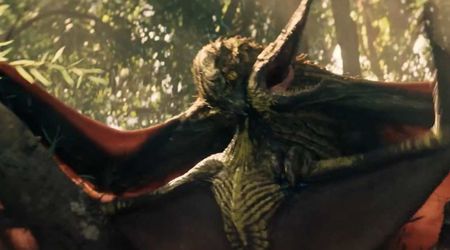'Baki: The Great Raitai Tournament' Review: A wild celebration of hypermasculinity takes itself too seriously

Spoilers for 'Baki: The Great Raitai Tournament'
Baki Hanma is back, continuing on his quest to be recognized as the strongest man in the world, this time in a Chinese tournament that only comes around once every 100 years. The tournament isn't all that Baki has to deal with, however, as his evil father Yujiro Hanma has decided to get involved. The stakes have never been higher - especially since the last time we saw Baki, his own body was failing him.
In the early episodes of 'Baki: The Great Raitai Tournament,' Baki purges himself of the toxins that had been plaguing his body since we last saw him. It's a pity that the show couldn't have done the same for its own toxic masculinity, because it takes itself just a little too seriously to be properly enjoyed. Feats of uber strength and near-magical abilities wrapped in pseudo-science and centuries of martial arts myth make for just the hyperstylized aesthetic that makes anime so much fun. Absolute absurdity only works if you don't look at it too closely, and the slowness of each battle, coupled with long explanations, forces viewers to look more closely at the show than is necessary - and that's where it falls apart.
The show makes a valiant effort towards appearing well thought out. As the fighters of the Raitai tournament explain just how their amazing abilities work, there are quick segments that try and explain the science and history behind those techniques - explanations that make little to no sense. Wins in the tournaments appear to be utterly arbitrary, as a winner is declared when the writers have decided they've put enough dramatic and gory punches into the plot. The seriousness with which the show's characters take fighting is the exact thing that makes it so hard to take seriously - none of this should work.
The season is split into three unequal parts. The first part is concerned with the tournament - a string of absurd and bloody battles end in an unsatisfying twist of logic. Is the ability to stop your heartbeat long enough to be declared legally dead a legitimate way to declare a tournament a draw? It's apparently enough for whoever is running the competition, because that's exactly how the tournament ends. Throughout the tournament, there are discussions of whether martial arts, and a logical mind, are a match for raw strength. The question is academic, as there appear to be about as many bulging muscles and martial arts techniques on both sides of the debate.
The second part focuses on the son of Muhammad Ali - yes, that one. With the addition of a single letter changing "Ali" to "Alai," the show manages to rope in real life figure Muhammad Ali into the show. Muhammad Alai Jr. has his sights set on two things: defeating Baki in battle, and winning his woman. His determination to win Kozue Matsumoto over is exactly as uncomfortable as it sounds, but for the most part, his storyline is about persevering no matter how badly he's beaten down. It would be inspirational if it wasn't for how harmful the message was - his father shames him for the "weakness" of not fighting despite having several broken limbs. Muhammad Alai Jr.'s story is all about how winning is the only thing that matters - no matter the cost, no matter how much he hurts himself in the process, and that to fail at fighting is to have failed at life.
It's the same attitude that's pervasive throughout the show - the worship of strength, above all other qualities. The series' devotion to it might just be the one thing holding it back. It's got some fantastic animation, and amazing vocal performances. The unapologetically primal Yujiro Hanma is a fascinating villain - an unstoppable force taking chilling, dark glee in violence. The strange abilities that fill the series would be a lot more fascinating if the show didn't try so hard to make them seem plausible.
The second part of the season ends on a cliffhanger, as Yujiro accepts his son's challenge for a fight - and the third part of the season takes its final episode to reintroduce the Death Row Inmates, teasing a return to the show's darker explorations.
If you enjoy bulging muscles, abstract discussions about the best way to fight, more bulging muscles and a series that revolves around the honor of being the strongest man the world has ever seen, then 'Baki: The Great Raitai Tournament' is very close to being enjoyable escapism. The tease for whatever comes next suggests that things might take a much darker turn - and that might just work out for the better.
All episodes of 'Baki: The Great Raitai Tournament' are now available to stream on Netflix.










